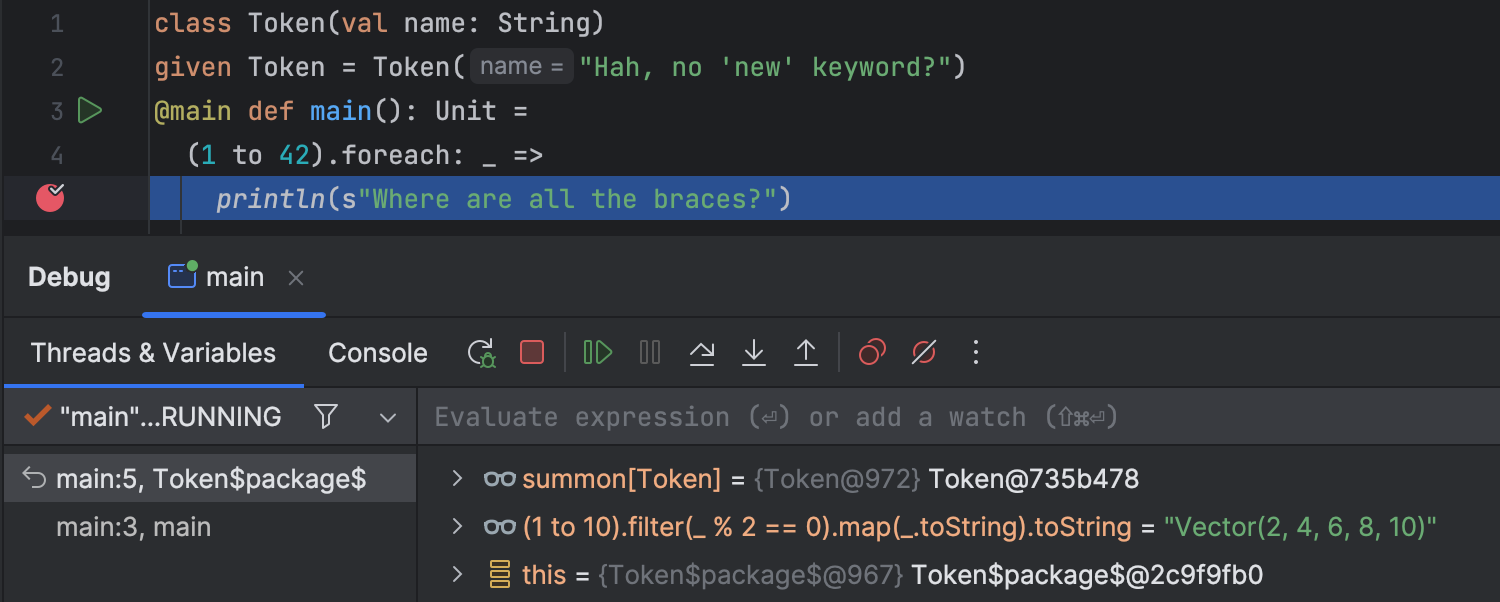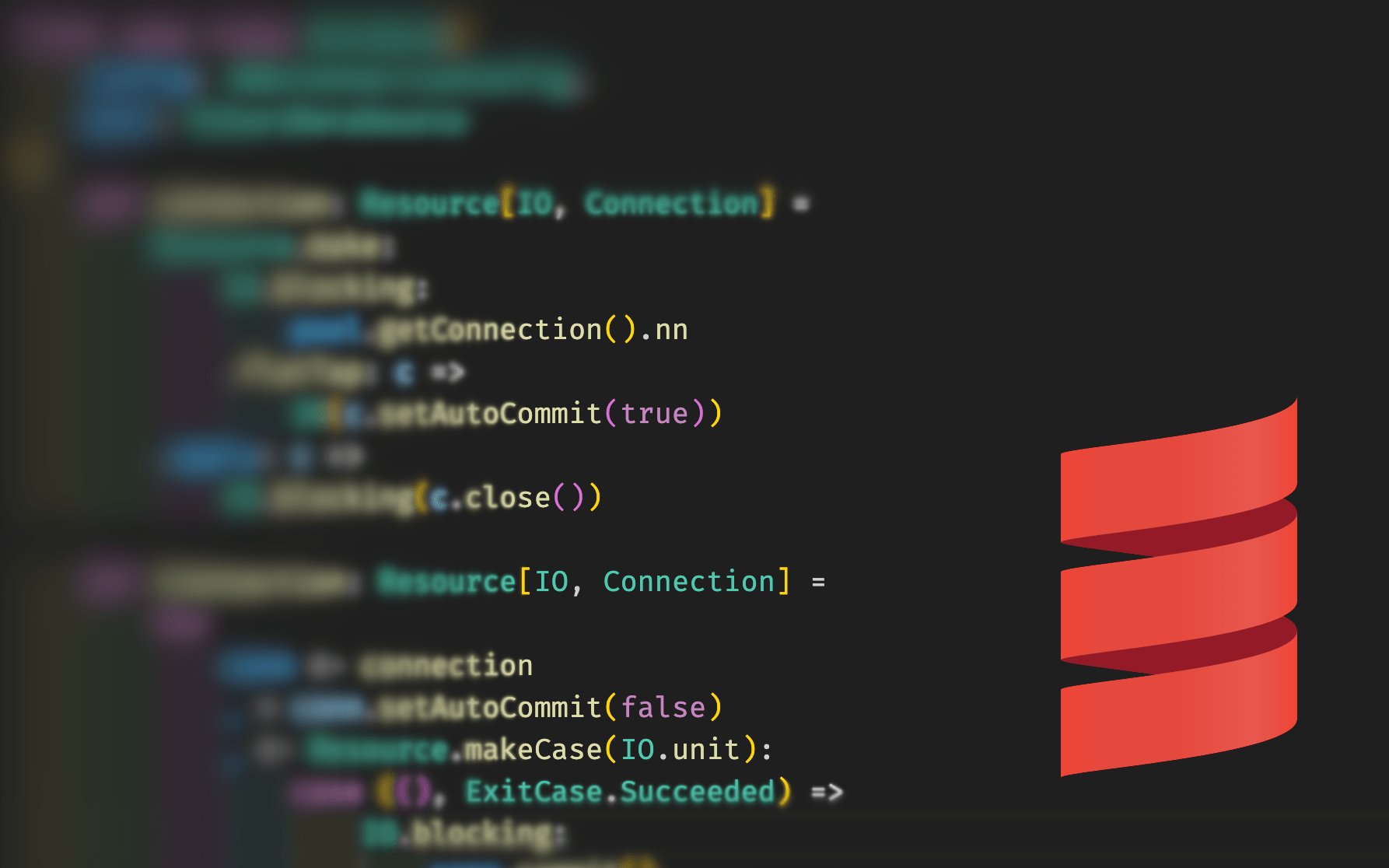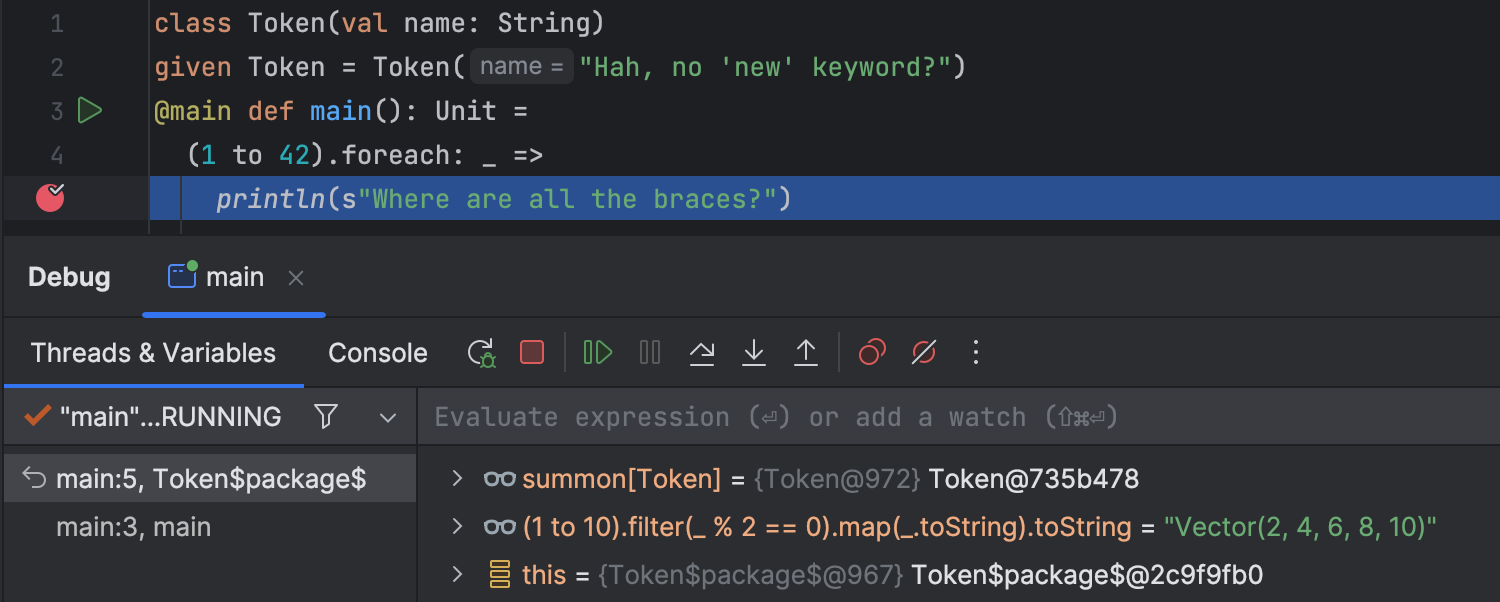I’ll bet people said the same thing when Intellisense started suggesting lines completions.
I'm sure many did, but I'm also pretty sure it's easy to draw a line between code assistance and LLM-infused code generation.
Telegram never was private, group chats never were encrypted (and that's not an opinion: the feature simply is missing). If anything, they are just removing their false and deceiving claims. That they remained there for so long is something I can't wrap my head around.
I'd argue XMPP is less ideal than Matrix because groups are located on a single server, which makes them easier to take down than Matrix' replicated state.
That is true, but it's never been a problem in my relatively long experience with XMPP: some server software can be used as a cluster and distributed, making it highly available (basically, the whole of WhatsApp runs on a fork of ejabberd), and the comparatively tiny resource usage of XMPP contributes to its stability.
XMPP does have a spec for F-MUC (distributed rooms somewhat like Matrix, many years before Matrix) and my rationale as to why it never picked up despite a whole decade of "competition" from Matrix is that it's a problem that just doesn't need solving. The price to pay for it is hefty: Matrix resource usage (bandwidth, CPU, RAM) is insane, its protocol complexity makes it a single-vendor implementation (which is risky on very practical grounds), and it's not even bulletproof for the niche use-case it set to tackle: in the end, your identity server on Matrix remains centralized.
You can tell that I'm partial to XMPP, but that's only after having been a service operator for years, with my original expectations largely favouring Matrix.
I think you should give Trilium(Next) Notes a try:
-
it has the hierarchical notes structure that you are familiar with in obsidian
-
it has better ways of keeping things organized (attributes can be values or references, can be shared and inherited, which provides a flexible framework for having notes "types" as templates that can be extended, e.g. people vs. colleagues, businesses vs. companies, etc)
-
it has the concept of note hoisting (which lets you focus on a note and its sub-notes, so other projects/spaces don't come in the way of autocomplete and placing references), and workspaces that builds further on top of that
-
it can be used standalone (local client/offline-only, like obsidian) but coupling it with a remote-server opens more interesting use-cases (synching, sharing notes with others by public URLs, one-user/multi-client editing) which gives the best of both worlds (local-first/online-first) and lets you access your personal notes on devices you don't necessarily own (which obsidian doesn't). The mobile app story isn't great (it's a PWA with limited offline capabilities at the moment), but isn't worse than the alternatives either (I can't really work and think long form on a handheld, no matter the editor experience, but perhaps that's just me).
You need to list out your requirements. What do you want to do? Where do you need your data? Do you care about open source? Self-hosting? Do you have an idea how your content will be organized? Will you ever need to tap into it as data? Etc
Have you tried trilium notes? Not as hyped and polished, but does extraordinarily well IME.
I didn't like obsidian's lacking in attributes structuring/typing and the fact that it cannot serve over a web UI (for wherever you cannot install the heavy client or just to share notes via URL), and found trilium notes to be doing that perfectly, and much much more. Highly recommend.
You can host (tens? of) thousands of XMPP sessions on a RPi at the back of your router or in a field hooked to a PV panel and sim card, and none of "the wealthy" knowing or caring about it, though. The difference with signal is that everyone can do that, and everyone doing it expands the network and makes it more resilient for the benefits of all.
How it works (to simplify) is them giving up on matrix clients ever becoming performant and well behaving on handheld devices (because of the absurd complexity of the protocol), and, instead of doing something about that, just decided to shift the client logic onto the server and castrating the clients (esp. for offline features). It's also good short-term business because it makes hosting Matrix even more cumbersome and expensive, giving a compelling reason for the type of midscale/corporate deployments previously on the fence about their self-hosting costs (due to poor design and scalability) to just pay Element for that (while probably contemplating an alternative future).
Matrix has the tendency to require all participants's servers to replicate all of the room state (who joined when, who said what when, whose avatar changed to what when, ...) practically forever, and is sucking a ton of bandwidth and CPU for the privilege. It's pretty bad, unfixable, and, if you ask me, over hyped.
Speaking about XMPP, compared to centralized services, at least the "who talks to whom" and metadata concerns in general are partially mitigated by not having all the metadata converge towards a single host, being able to selfhost, and being able to host behind tor/i2p/...
Other options for what exactly? Telegram practically has the same privacy and encryption guarantees as late 90's forums and bulletin boards. If you want to learn nothing from that, keep using a centralized nonstandard service deprived of end-to-end encryption!
If you have the impression that there's a dominant, homogeneous "mass" sharing the same opinion, you are right there in the middle of an information bubble and a victim of those "algorithms".
Scala Plugin 2024.2 is out with: - Better support for the “fewer braces” syntax in for-comprehensions - Enum cases included in import suggestions - Enum cases suggested in code completion - Improved CBH performance - Onboarding tips for new projects

Matrix seemed interesting right until I got to self hosting it. Then, getting to know it from up close, and the absolute trainwreck that the protocol is, made me love XMPP. Matrix has no excuse for being so messy and fragile at this point. You do you, but I decided that it isn't worth my sysadmin time (especially when something like ejabberd is practically fire and forget).
I don't think our views are so incompatible, I just think there are two conflictual paradigms supporting a false dichotomy: one that's prevalent in the business world where "cost of labour shrinks cost of hardware" and where it's acceptable to trade some (= a lot of) efficiency for convenience/saving manhours. But this is the "self-hosted" community, where people are running things on their own hardware, often in their own house, paying the high price of inefficiency very directly (electricity costs, less living space, more heat/noise, etc).
And docker is absolutely fine and relevant in this space, but only when "done right", i.e. when containers are not just spun up as isolated black boxes, but carefully organized as to avoid overlapping services and resources wastage, in which case managing containers ends-up requiring more effort, not less.
But this is absolutely not what you suggest. What you suggest would have a much greater wastage impact than "few percent of cpu usage or a little bit of ram", because essentially you propose for every container to ship its own web server, application server, database, etc… We are no longer talking "few percent" of overhead of the container stack, we are talking "whole new machines" software and compute requirements.
So, in short, I don't think there's a very large overlap between the business world throwing money at their problems and the self-hosting community, and so the behaviours are different (there's more than one way to use containers, and my observation is that it goes very differently in either). I'm also not hostile to containers in general, but they cannot be recommended in good faith to self-hosters as a solution that is both efficient and convenient (you must pick one).
How does that compare to wallabag?
I don’t care […] because it’s in the container or stack and doesn’t impact anything else running on the system.
This is obviously not how any of this works: down the line those stacks will very much add-up and compete against each other for CPU/memory/IO/…. That's inherent to the physical nature of the hardware, its architecture and the finiteness of its resources. And here come the balancing act, it's just unavoidable.
You may not notice it as the result of having too much hardware thrown at it, I wouldn't exactly call this a winning strategy long term, and especially not in the context of self-hosting where you directly foot the bill.
Moreover, those server components which you are needlessly multiplying (web servers, databases, application runtimes, …) have spent decades optimizing for resource pooling (with shared buffers, caching, event scheduling, …). These efforts are all thrown away when run for a single client/container further lowering (and quite drastically at that) the headroom for optimization and scaling.
That's… a tool in the bucket for that. But I'm not really sure that's the point here?
I don't think containers are bad, nor that the performance lost in abstractions really is significant. I just think that running multiple services on a physical machine is a delicate balancing act that requires knowledge of what's truly going on, and careful sharing of resources, sometimes across containers. By the time you've reached that point (and know what every container does and how its services are set-up), you've defeated the main reason why many people use containers in the first place (just to fire and forget black boxes that just work, mostly), and only added layers of tooling and complexity between yourself and what's going on.
Would that make a difference?
We're happy to announce the release of Metals v1.3.0, which brings several big

At the risk of sounding like an unhinged fanboy: XMPP is pretty awesome! I’ve been involved in one way or another with XMPP, the network protocol that is an open standard for messaging and presence, for the last two decades. Much of that revolves around development of Openfire, our XMPP-based real-...

Sorry if this isn't the right venue for that, I thought it'd be in the tone of "self-hosting" and "federation" :)
tl;dr: some XMPP servers started to deploy a mod to report back about how they federate with the rest of the network, and now there is a pretty graph to show for it at https://xmppnetwork.goodbytes.im/webgl.html
Good news as natural gas, coal, and solar see the biggest changes.

We're happy to announce the release of Metals v1.2.0, which continues to improve

Scala 3 As usual, the new release focused much on improving the Scala 3 support. Especially enums received much attention. The Scala plugin now recognizes that enums cannot be extended and highlig

Signal is the world’s most widely used truly private messaging app, and our cryptographic technologies provide extra layers of privacy beyond the Signal app itself. Since launching in 2013, the Signal Protocol—our end-to-end encryption technology—has become the de facto standard for private commu...

Scala’s coding style advised to use 2 spaces of indentation, but that was before Scala 3’s optional braces, which introduces significant indentation. It’s time for an upgrade of the coding style.

Today we are sharing a report from the Microsoft Threat Analysis Center (MTAC) on Russian influence operations in Africa, principally focused on the Niger coup. We believe it is vital there is wider understanding of the ways in which the internet is being used to stoke political instability around t...

"There is no place for modernization, there is only the mission of survival."


YouTube Video
Click to view this content.
China suspended publication of its youth jobless data on Tuesday, saying it needed to review the methodology behind the closely watched benchmark, which has hit record highs in one of many warning signs for the world's second-largest economy.

Better Scala 3 Support IntelliJ IDEA 2023.2 brings enhanced Scala 3 support, with a focus on providing a streamlined development experience. Notable improvements include fixes for Scala 3 enum high

Ox, a library using Project Loom and Scala 3, offers various features, including implementation of Golike channels. Channels, along with higher-level combinators, allow working with streams in both functional and imperative styles. How can you use it in practice?

We're happy to announce the release of of Metals v1.0.0, which was a long time

Hi there!
I have a pg cluster serving different services, with one of them, (let's call it SL), non-critical, but hammering the database with lots of (mostly) short lived queries.
Since I implemented a connection pooler (pgbouncer), I've noticed a great improvement in throughput, and the SL service is now much more responsive than before. That said, I think this was quite detrimental to fairness overall, because some of the other services which used to respond fairly well now happen to timeout often.
I was wondering if there's any way to prioritize queries execution (ideally by user or database) so that the high-frequency/low criticality service leaves way to anything else that comes up. To my surprise, nothing comes up from my googling of "pgbouncer prioritization" or "pgbouncer fairness". pgcat seems to offer some loadbalancing and sharding, but that seems to be only applicable for multi-server setups. Any idea/suggestion?
Thanks!
Developers at Meta use a number of tools in their workflows, many of which are open source so you can try them yourself.

Hi! Are there any criteria in place as to how this instance and its accounts federate with others? For instance, there are a few communities on feddit.de which I'd like to subscribe to, but they are not listed here, am I doing something wrong?